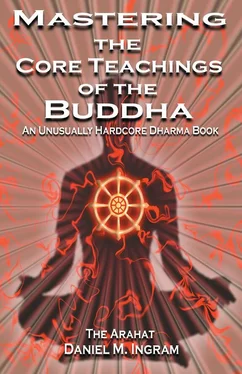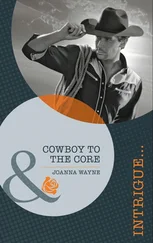Daniel Ingram - Mastering the Core Teachings of Buddha - An Unusually Hardcore Dharma Book
Здесь есть возможность читать онлайн «Daniel Ingram - Mastering the Core Teachings of Buddha - An Unusually Hardcore Dharma Book» весь текст электронной книги совершенно бесплатно (целиком полную версию без сокращений). В некоторых случаях можно слушать аудио, скачать через торрент в формате fb2 и присутствует краткое содержание. Год выпуска: 2009, ISBN: 2009, Издательство: Aeon Books, Жанр: Старинная литература, на русском языке. Описание произведения, (предисловие) а так же отзывы посетителей доступны на портале библиотеки ЛибКат.
- Название:Mastering the Core Teachings of Buddha - An Unusually Hardcore Dharma Book
- Автор:
- Издательство:Aeon Books
- Жанр:
- Год:2009
- ISBN:9781904658405
- Рейтинг книги:5 / 5. Голосов: 1
-
Избранное:Добавить в избранное
- Отзывы:
-
Ваша оценка:
- 100
- 1
- 2
- 3
- 4
- 5
Mastering the Core Teachings of Buddha - An Unusually Hardcore Dharma Book: краткое содержание, описание и аннотация
Предлагаем к чтению аннотацию, описание, краткое содержание или предисловие (зависит от того, что написал сам автор книги «Mastering the Core Teachings of Buddha - An Unusually Hardcore Dharma Book»). Если вы не нашли необходимую информацию о книге — напишите в комментариях, мы постараемся отыскать её.
Mastering the Core Teachings of Buddha - An Unusually Hardcore Dharma Book — читать онлайн бесплатно полную книгу (весь текст) целиком
Ниже представлен текст книги, разбитый по страницам. Система сохранения места последней прочитанной страницы, позволяет с удобством читать онлайн бесплатно книгу «Mastering the Core Teachings of Buddha - An Unusually Hardcore Dharma Book», без необходимости каждый раз заново искать на чём Вы остановились. Поставьте закладку, и сможете в любой момент перейти на страницу, на которой закончили чтение.
Интервал:
Закладка:
The first question is whether or not one has a particular agenda for what kind of sensations or focus one wishes to include in the practice, i.e. whether one wants to do “choiceless awareness” practice or a more structured practice. Choiceless awareness practice, in which one investigates whatever arises without a more specific focus, has the advantage of being very inclusive and “natural,” and yet by the same token some people can easily get distracted and ungrounded when they don’t take a more structured approach.
For those taking a more structured approach, the axes one can move on are the degree to which one includes physical or mental sensations in meditation, whether or not one focuses narrowly or uses a more open field of attention, and whether or not one moves the attention around or keeps it in about the same place.
The primary advantage of trying to focus primarily on physical sensations, such as the breath, the sensations of walking, the points of contact with the floor, or the sensations of our physical body in general, is that they are much less seductive than mental sensations. Mental sensations tend to trap us in the content and stories, as anyone who has ever tried to meditate knows all to well. The more mental sensations we include in our practice, the more of our emotional and psychological stuff we will encounter. This can be a mixed blessing. If our practice is very strong, we can enter such territory and yet still see the true nature 75
Practical Meditation Considerations
of all of the sensations that make it up. If our practice is not very strong, we will simply be swamped, lost in the habitual patterns of thinking associated with our “stuff.”
Thus, physical sensations help us ground ourselves, and mental sensations open us up to plunging into the depths of mental life or getting lost in it. From a pure insight point of view, neither one is more holy or more of a source of truth. However, when we do the experiment we will quickly realize what works for us; “works” in this case meaning that we can keep seeing the true nature of the numerous quick sensations that make up our reality.
There are numerous other types of physical objects that may be investigated, including sounds, sights, and even smells and tastes. Some people have a natural proclivity for investigating the sensations of a particular sense door. There is a monk in Burma that recommends his students use the high-pitched tones in our ear as an object, and sometimes I have found them very useful and interesting. Rather than seeming to be a continuous tone, we can hear each little individual sensation of ringing as a discontinuous entity. We may also take sights as object, such as the colors on the back of our eyelids or, if our eyes are open, whatever visual sensations present themselves. These are also impermanent, and if we are good at this we may even see our visual world presenting itself like the frames of a movie.
Another consideration is whether to use a narrow or broad focus of attention. The advantage of a more narrow focus of attention is that it may exclude many distractions. We may get very good at seeing certain selected types of objects, such as the sensations of breathing in the abdomen or at the tip of the nose, and this is just fine and even a very good idea. Such one pointed practice is routinely recommended, and some people, such as myself, have a natural inclination towards this style.
Others find that this makes them too tight and irritable. However, they find that they do much better with a wider and more inclusive field of attention. These things vary with the person and the situation, and if we are honest with ourselves we will be able to know what is working for us and what is not. The advantage of a wide field of attention is that we need to put less effort into staying focused and can be more present to 76
Practical Meditation Considerations
whatever arises naturally. The downside is that we may become very lazy meditators and get lost in thought. These tradeoffs must be weighed against each other.
There are practices, such as body sweeping, that keep the attention moving all the time. This can be very helpful, as it keeps us engaged with new and interesting sensations and may keep us from getting into ruts of thinking that we are staying with new sensations when really we are just remembering old patterns. However, these practices have the downside that they can sometimes lack the real precision of honest attention that comes from staying with more restricted areas of focus.
We can end up giving more attention to keeping our attention moving than to clearly investigating what our attention reveals. Again, some people do well with moving attention practices and some seem to thrive on keeping the attention in one place.
It should be noted that we may not always know exactly what is best for us. We may pick practices that feel good to us precisely because they don’t hit too closely, don’t allow us to clearly investigate the disconcerting truths of impermanence and suffering, don’t hit at our sense of identity in a way that really cuts to the bone. We might also pick traditions that are grueling and very painful for us because we imagine that this is what is important, even if such traditions do not facilitate clear investigations of the truth of our actual experience. Thus, working with good teachers who can advise us and help us keep from resting in our delusions is recommended. That said, some teachers only teach one practice, usually the particular one that worked for them. If that is also a technique that genuinely works for us, then we are set. If not, we may wish to investigate other traditions and techniques.
On a related note, I have advocated figuring out what works for you, considering how you are built and where you are. I do, however, recommend moderation in this. For instance, if you sit down to meditate and then decide that you are just a bit sleepy, so you stand up, and then you settle down a bit, so a few minutes later you sit down again. Then a minute later you decide you really don’t like that little pain in your knee and so you lie down, and so it goes. Such practice is likely to be of little benefit to you, so try to pick a posture and stick with it within reason. The same applies to objects of meditation, particularly 77
Practical Meditation Considerations
when you are starting out. There is a lot to be said for cultivating this basic level of self-control and discipline. Without it, we can end up shifting our practice habits every time our investigation begins to hit close to home.
RESOLVE
That brings me to the topic of resolve. I strongly recommend developing the freedom to choose what happens in your life that comes from discipline. While people often think of discipline as being contrary to freedom, I equate the two in many ways. Discipline and resolve allow one to make choices about what we do and stay strong in the face of difficulties. Thus, I recommend that when you set aside a period of time for a particular training, you resolve that for that period you will work on the specific training you have set out to work on, and that you will work on it whole-heartedly.
Without discipline, without formal resolve, you may easily find yourself in something resembling the following situation. You sit down on the cushion with the vague intention to do some insight practices, and begin trying to investigate, but soon you find yourself thinking about how you really should be paying your bills. Then your knee begins to hurt, so you tune into the low-level jhanic bliss that you have managed to cultivate the ability to find, and then you feel hungry, so you get up and fix yourself a sandwich. You then think to yourself, “Hey, what am I doing here eating this sandwich? Wasn’t I doing insight practice?”
Читать дальшеИнтервал:
Закладка:
Похожие книги на «Mastering the Core Teachings of Buddha - An Unusually Hardcore Dharma Book»
Представляем Вашему вниманию похожие книги на «Mastering the Core Teachings of Buddha - An Unusually Hardcore Dharma Book» списком для выбора. Мы отобрали схожую по названию и смыслу литературу в надежде предоставить читателям больше вариантов отыскать новые, интересные, ещё непрочитанные произведения.
Обсуждение, отзывы о книге «Mastering the Core Teachings of Buddha - An Unusually Hardcore Dharma Book» и просто собственные мнения читателей. Оставьте ваши комментарии, напишите, что Вы думаете о произведении, его смысле или главных героях. Укажите что конкретно понравилось, а что нет, и почему Вы так считаете.












